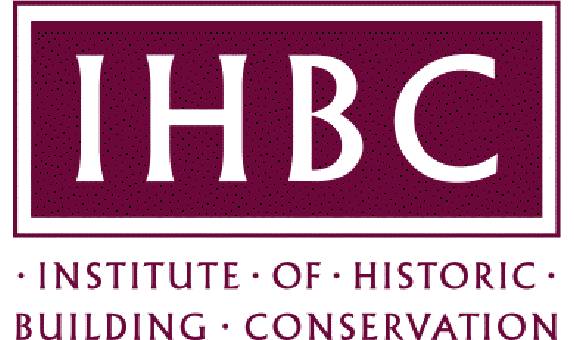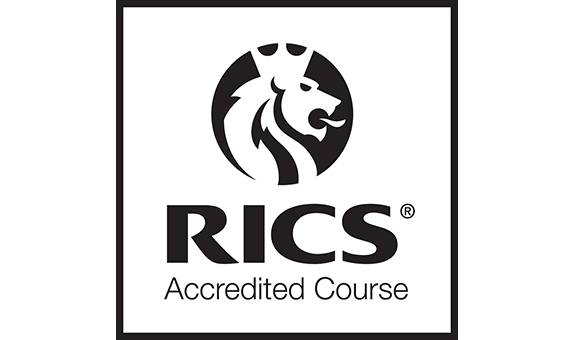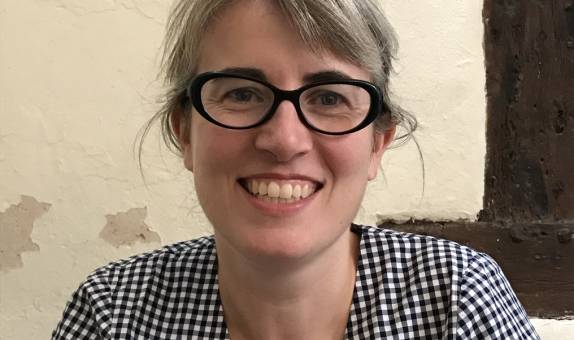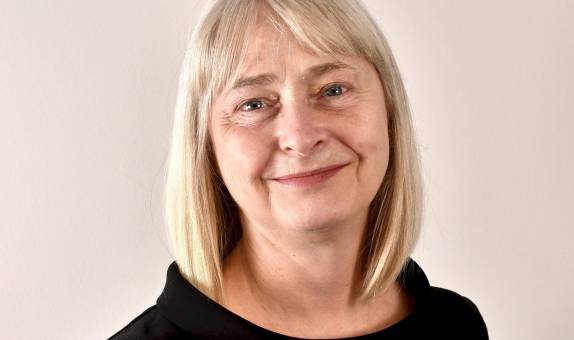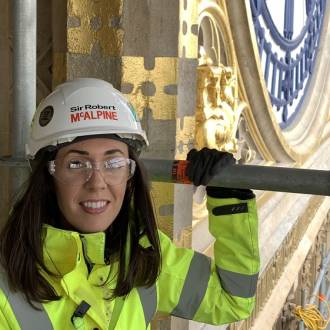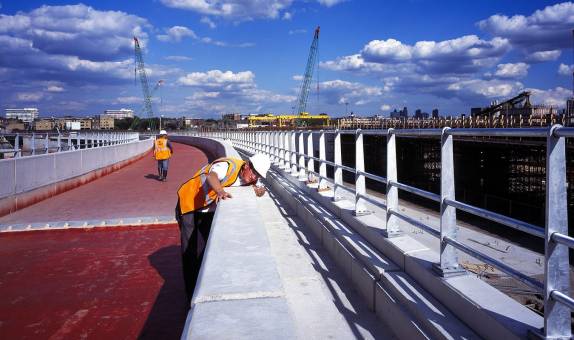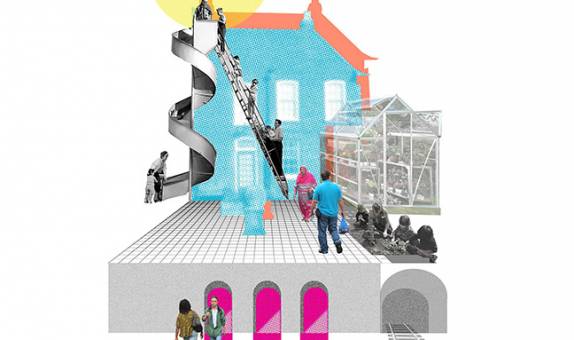Historic Building Conservation FdSc and BSc (Hons) top-up
Why choose this course?
The UK's historic built environment is rich and diverse, contributing to national identity, our quality of life and the country's economy and education. This course offers a unique blend of vocational and academic learning that will greatly enhance your employability within this challenging and rewarding field. The course content is specifically designed to address skill shortages within the conservation industry.
Professional recognition
The foundation degree, when combined with the BSc (Hons) top-up, is recognised by the Institute of Historic Building Conservation (IHBC), the principal professional body for building conservation practitioners and historic environment specialists. The Historic Building Conservation BSc (Hons) top-up is accredited by the Royal Institution of Chartered Surveyors (RICS).
Please follow our Architecture & Landscape Instagram to see some of the great work we are doing.
| Qualification | Attendance | UCAS code/apply | Year of entry |
|---|---|---|---|
| FdSc | 2 years full time | K250 | 2024 |
| BSc (Hons) top-up | 1 year full time | KF50 | 2024 |
| BSc (Hons) top-up | 2 years part time | Apply direct to the University | 2024 |
Please note: this course is closed for 2023 entry.
| Location | The Building Crafts College (BCC) in Stratford, London (FdSc) and Kingston University Knights Park campus (BSc top-up) |
Reasons to choose Kingston
- Supported by the National Heritage Training Group (NHTG), which includes English Heritage, the National Trust, Historic Royal Palaces and CITB- Construction Skills, this course is taught by industry experts with access to current conservation projects.
- Upon completion of the BSc (Hons) top-up, you can seek employment to support you in undertaking your Assessment of Professional Competence. This leads to chartered membership of the Royal Institution of Chartered Surveyors.
- This course also supports you in preparing to start the practice period required to become a member of the Institute of Historic Building Conservation.
The Art School Experience
As part of Kingston School of Art, students on this course benefit from joining a creative community where collaborative working and critical practice are encouraged.
Our workshops and studios are open to all disciplines, enabling students and staff to work together, share ideas and explore multi-disciplinary making.

Accreditation
Institute of Historic Building Conservation (IHBC)
The course is recognised by the Institute of Historic Building Conservation (IHBC).
Royal Institution of Chartered Surveyors (RICS)
This course is fully accredited by the Royal Institution of Chartered Surveyors (RICS). On successful completion, graduates who are in suitable employment may proceed to the RICS final assessment programme.
What you will study
The Historic Building Conservation course is an integrated two-year foundation degree and a one-year BSc (Hons) top-up degree for those who have successfully completed the foundation degree and wish to supplement their studies.
The first two years of the course are taken at the Building Crafts College at Stratford in East London. The college provides a range of craft programmes, and opportunities exist for supplementary study on their evening programmes. Sited close to a major transport hub, it provides excellent access to all parts of the UK and Europe.
The foundation degree combines academic elements and project work. It is particularly suited to those already working at a craft level within historic building conservation. Applicants from a non-craft-based level background are also welcome, and will develop conservation skills through the course. The final Elective Project offers the opportunity to undertake a practical project using craft skills.
The BSc (Hons) top-up year is taught at Kingston University's Department of Architecture and Landscape at Knights Park campus. You will be part of its exciting and vibrant atmosphere, and be supported by state-of-the-art workshops and resources, as well as having access to the library and workshop resources. The top-up can be taken part time over two years or full time in one year, and includes academic and project-based modules.
You will develop important interdisciplinary skills and extend your knowledge of the historic built environment. Study visits are key to this programme. You will learn to make presentations, work in teams, write reports, debate current topics, and apply IT. You will also learn how to initiate and execute simple research projects. The course culminates in an independent research project.
Modules
The programme is made up of four Level 6 modules each worth 30 credit points. Typically, a student upon entry must have completed 120 credits at each of Levels 4 and 5 on an appropriate programme.
Year 1
Year 2
Year 3
Core modules
Context of Conservation and the Built Environment
30 credits
The module introduces you to the history and development of the conservation movement within the built environment and considers the various bodies, both national and international, which promote historic building conservation.
Development of Skills for the Historic Environment
30 credits
This module considers the history of architecture and the influences, national and international, which have shaped architecture over time. You will also be introduced to a range of hand drawn and digital media providing opportunities for the acquisition of skills under guidance, in order develop confidence and acquire proficiency in their use. An overseas field trip is also a significant element of this particular module.
Conservation Legislation and Regulation
30 credits
The module will consider how the conservation and construction industry is controlled and regulated and how such controls and regulations are implemented. The module will introduce you to health and safety legislation insofar as it impacts on conservation projects undertaken in the built environment. You will also be introduced to the planning process, building regulations and building control procedures.
Application of Skills in Conservation
30 credits
This module is intended to begin helping you to develop your skills for use in the field on the foundation degree in historic building conservation. An introduction to the use of survey equipment and undertaking of measured surveys are important elements of this module. You will also be encouraged to develop the range of skills introduced in the other modules in the first year of the programme, in particular, but not restricted to, your drawing and sketching abilities.
Core modules
Applied Conservation Measurement and Analysis
30 credits
This module provides you with an understanding of how measurement and analysis can be applied to practical conservation work. The module covers the study of the different survey techniques applicable to traditional buildings and places this knowledge in the context of the decay processes. Knowledge gained in the study of survey techniques and decay processes will be applied to the planning and implementation of conservation projects. The module is taught through lectures, seminars, workshop discussions and visits and is assessed through coursework.
Management of Conservation Projects
30 credits
This module covers the range of skills associated with methods of management on conservation projects in the built environment. The module will consider how projects are procured in the conservation industry and how these various procurement methods work in practice. Project management techniques, including the use of project management packages will be covered, as will the practicalities of resourcing a project in historic building conservation.
Traditional Building Construction and Repair
30 credits
This module provides you with an understanding of traditional building construction and appropriate repair techniques. The module covers the study of the different building techniques and materials used in the construction of buildings. It provides you with a practical understanding of the various craft techniques and the use of traditional materials. You will also study areas of construction that will be vulnerable to decay in order that you can advise on appropriate repairs. The module covers inspection of historic buildings, appraisal and identification of decay.
Elective Project
30 credits
This module provides you with the opportunity to design and execute a small scale research project under supervision. You will study in-depth a relevant topic which you find particularly stimulating and which will be used as the basis to develop further and practice your research skills. A series of lectures on research methods will be followed by one-to-one tutorial sessions during which you will be offered support and guidance in developing your particular area of research.
Importantly, the Elective Project is an opportunity for you to draw together your learning from the other modules on the programme and to demonstrate this learning by way of a part practical, part desk-based research project.
Core modules
The Existing Built Environment
30 credits
This module provides you with a critical understanding of heritage in the built environment. You will study the legislative and regulatory protection of heritage assets and explore the current debates surrounding such buildings including the potential and actual conflicts between competing interests. You will deepen their understanding of historic building materials in order that you can advise on appropriate conservation and repair, together with options for adaptation to new uses. The module is taught through lectures, seminars, workshop discussions and visits to heritage buildings and is assessed through case studies and coursework.
Advanced Skills for the Building Conservation Surveyor
30 credits
This module allows you to develop your practical skills in order to critically inform and enable practical conservation work. The module builds on the prior learning of the programme and provides the opportunity for the advanced practical application of historic building conservation surveying knowledge and skills in relation to the consideration and examination of a specific project. The module is delivered by keynote lectures and workshops which may be site-based and a short residential study trip. Assessment is by portfolio and individual reflective essay.
Adaptive Building Design and Application
30 credits
This module provides the opportunity for you to consider and find solutions for the beneficial use or adaptive re-use of an element or elements of the historic built environment devised as a typical practice-based scenario. You will evaluate options, develop detailed proposals, investigate possible funding streams and propose strategies for working with existing and new fabric. The module is delivered by keynote lectures workshops and studio sessions. Assessment is by completion of a major project.
Research Project
30 credits
The Research Project provides an opportunity for you in your final year of study of the Historic Building Conservation undergraduate programme to initiate, design and execute a small scale research project under supervision. You will have the opportunity to study in-depth a relevant topic which you find particularly stimulating and to further develop and practice your research skills which you have acquired at earlier levels of their programme of study.
In undertaking the work you will demonstrate knowledge and competence in reviewing literature and in using one or more of a range of research methods to collect and analyse data and draw well-founded conclusions. To support you, seminars on research methods and individual one-to-one tutorials, ensure that you are supported in the process. Assessment is by submission of an initial research proposal and the completed project. Students who are studying part time may undertake a project that relates to their workplace if deemed appropriate. The project will provide an opportunity for you to synthesise your learning, offering the opportunity to demonstrate key skills and expertise relevant to your future employability.
Future Skills
Knowledge to give you the edge
Embedded within every course curriculum and throughout the whole Kingston experience, Future Skills will play a role in shaping you to become a future-proof graduate, providing you with the skills most valued by employers such as problem-solving, digital competency, and adaptability.
As you progress through your degree, you'll learn to navigate, explore and apply these graduate skills, learning to demonstrate and articulate to employers how future skills give you the edge.
At Kingston University, we're not just keeping up with change, we're creating it.

Entry requirements
Teaching and assessment
Who teaches this course?
Facilities
The BSc (Hons) top-up course is taught at Kingston School of Art, one of the leading art and design institutions in Europe.
Our teaching is guided by two principles: that our students learn by the process of making; and that students are critical practitioners who contribute to the development of the subject areas.
Many of the staff in Kingston School of Art are current practitioners and have extensive experience and professional links, helping you to develop your skills, networks and gain access to industry contacts.
The foundation degree is taught at Building Crafts College in Stratford, East London, with the opportunity to top up to the BSc (Hons) at Kingston University.
Fees and funding
Additional costs
Depending on the programme of study, there may be extra costs that are not covered by tuition fees which students will need to consider when planning their studies. Tuition fees cover the cost of your teaching, assessment and operating University facilities such as the library, access to shared IT equipment and other support services. Accommodation and living costs are not included in our fees.
Where a course has additional expenses, we make every effort to highlight them. These may include optional field trips, materials (e.g. art, design, engineering), security checks such as DBS, uniforms, specialist clothing or professional memberships.
What our graduates say
After you graduate
You'll graduate with the knowledge and skills needed to work in historic building conservation for a specialist contractor, a local authority or consultancy, or a major national heritage organisation. Graduates have gone on to work at prestigious venues such as the British Museum in London and the Elizabeth Tower, also known as Big Ben.
Several graduates have chosen to progress to the MSc Historic Building Conservation, a specialist interdisciplinary postgraduate course in the Department of Architecture and Landscape.
The FdSc and BSc (Hons) top-up are recognised by the IHBC. You will also be able to start the practice period with a view to becoming a full member of the Institute. Following completion of the BSc (Hons) top-up, you will be eligible to seek employment which would support you in undertaking your Assessment of Professional Competence, leading to Chartered membership of the RICS.
Key information set
The scrolling banner(s) below display some key factual data about this course (including different course combinations or delivery modes of this course where relevant).
Course changes and regulations
The information on this page reflects the currently intended course structure and module details. To improve your student experience and the quality of your degree, we may review and change the material information of this course. Course changes explained.
Programme Specifications for the course are published ahead of each academic year.
Regulations governing this course can be found on our website.



